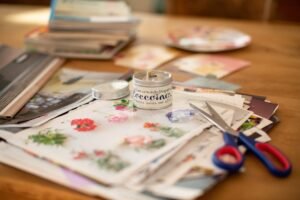Comprehensive Guide of Boating
Overview
Boating is a recreational activity that involves the use of various types of watercraft, such as boats, yachts, canoes, and kayaks, to navigate on bodies of water like lakes, rivers, and oceans. This hobby offers individuals the opportunity to explore nature, enjoy the outdoors, and engage in water-based activities such as fishing, sailing, and water sports. Boating can be a relaxing escape or an exhilarating adventure, depending on the type of craft and the activities chosen. It fosters a sense of community among enthusiasts, as many people participate in boating clubs and events, sharing their passion for the water and the experiences it brings.
History
The history of boating dates back thousands of years, with evidence of early watercraft found in ancient civilizations such as the Egyptians, who used reed boats on the Nile River. The development of sailing vessels in the Mediterranean allowed for exploration and trade, significantly impacting cultures and economies. Over the centuries, advancements in boat design and technology have transformed boating from a necessity for transportation and fishing into a popular recreational activity. The 20th century saw the rise of motorized boats, making boating more accessible to the general public. Today, boating encompasses a wide range of activities, from leisurely cruises to competitive racing, reflecting its rich history and evolution.
Popularity and Demographics
Boating is a popular hobby enjoyed by millions of people worldwide, appealing to a diverse demographic. In the United States alone, the National Marine Manufacturers Association reports that over 87 million Americans participate in recreational boating each year. This hobby attracts individuals and families of all ages, with many people drawn to the social aspects of boating, such as gatherings, events, and community activities. Boating is particularly popular in coastal regions and areas with abundant lakes and rivers, where access to watercraft is more readily available. The rise of social media has also contributed to the popularity of boating, as enthusiasts share their experiences and adventures online, inspiring others to take up the hobby.
Sponsored Hobbyists and Vendors
Become a Sponsor!
Affiliate Disclaimer: Throughout some sections below, Hobby Spotlight may suggest some tools, equipment or material using affiliate links. By purchasing any of those items, Hobby Spotlight may earn a small commission. This helps fund our website, content and services without directly charging our users.
Getting Started
Essential Boating Gear:
Beginner
- Life Jacket: Essential safety gear for boating.
- Paddle: Basic paddle for canoes or kayaks.
- Boating Gloves: Protective gloves for better grip and comfort.
- Anchor: Basic anchor to secure your boat.
- Dry Bag: Waterproof bag to keep your belongings dry.
Intermediate
- Fish Finder: Device to locate fish underwater.
- Marine Radio: Communication device for safety and navigation.
- Boat Cover: Protective cover to shield your boat from elements.
- Navigation Charts: Maps for safe navigation on water.
- First Aid Kit: Essential medical supplies for emergencies on the water.
Basic Requirements and Initial Setup:
- Boat Selection: Choose the right type of boat based on your intended use, whether it’s for fishing, sailing, or recreational cruising. Consider factors like size, material, and capacity.
- Safety Equipment: Equip your boat with essential safety gear, including life jackets, flares, a first aid kit, and a fire extinguisher. Compliance with local regulations is crucial.
- Storage and Maintenance: Ensure you have a suitable place to store your boat when not in use, along with tools and supplies for regular maintenance, such as cleaning products and repair kits.
Fundamental Skills to Learn:
- Navigation: Understanding charts, GPS, and basic navigation techniques is essential for safe boating.
- Boat Handling: Learn how to maneuver your boat in various conditions, including docking, anchoring, and operating in tight spaces.
- Weather Awareness: Being able to read weather patterns and forecasts helps in planning safe outings and avoiding dangerous conditions.
- Emergency Procedures: Familiarize yourself with emergency protocols, including man-overboard procedures and how to handle equipment failures.
- Maintenance Skills: Basic knowledge of engine maintenance, cleaning, and repairs will prolong the life of your boat and enhance safety.
Sub-Hobby/Common Activities:
- Sailing: Engaging in the art of sailing, which involves using wind power to navigate and control the boat.
- Fishing: Combining boating with fishing, whether from a kayak, canoe, or larger vessel, to enjoy the sport and relax.
- Water Sports: Participating in activities like wakeboarding, waterskiing, or tubing, which add excitement to your boating experience.
- Boat Racing: Competing in local or national boat races, which can be thrilling and foster a sense of community among enthusiasts.
- Exploring Waterways: Discovering new lakes, rivers, and coastal areas, which can lead to unique adventures and experiences.
Terminology:
- Bow: The front part of the boat.
- Stern: The rear part of the boat.
- Port: The left side of the boat when facing forward.
- Starboard: The right side of the boat when facing forward.
- Draft: The vertical distance between the waterline and the bottom of the hull, indicating how deep the boat sits in the water.
- Keel: A structural element that provides stability and helps with steering.
- Anchor: A device used to secure the boat in place by digging into the seabed.
- Hull: The main body of the boat, which provides buoyancy and shape.
- Outboard Motor: A detachable motor mounted on the outside of the boat, used for propulsion.
- Buoyancy: The ability of the boat to float and remain stable on the water’s surface.
Advanced Topics and Specializations
Advanced Tools and Equipment:
- High-Performance GPS Chartplotter: A sophisticated device that provides navigation, mapping, and real-time data for safe and efficient boating.
- Marine VHF Radio: A reliable communication tool for boaters to stay connected and receive weather updates and emergency information.
- Hydraulic Steering System: An advanced steering mechanism that offers precise control and responsiveness for larger boats.
- Underwater Drone: A remote-controlled drone designed for underwater exploration, providing high-definition video and data collection.
- Marine Solar Panel Kit: A complete solar power system for boats, allowing for sustainable energy generation while on the water.
Advanced Projects and Achievements:
- Long-Distance Sailing: Successfully completing a multi-day sailing trip across open waters, demonstrating navigation skills and endurance.
- Boat Restoration: Reviving an old or damaged boat through extensive repairs and refurbishments, showcasing craftsmanship and attention to detail.
- Regatta Participation: Competing in local or national sailing races, achieving notable placements and gaining experience in competitive sailing.
Advanced Techniques and Methods:
- Navigation Skills: Mastering the use of charts, compasses, and GPS systems to plot courses and ensure safe travel on water.
- Weather Interpretation: Learning to read weather patterns and forecasts to make informed decisions about sailing conditions and safety.
- Advanced Seamanship: Developing skills in docking, anchoring, and maneuvering boats in various conditions, including adverse weather.
Specializations and Niche Areas:
- Yacht Sailing: Focusing on the operation and maintenance of larger, more luxurious vessels, often involving complex systems.
- Kayaking and Canoeing: Engaging in smaller, more agile watercraft for recreational paddling, white-water challenges, or long-distance touring.
- Fishing and Angling: Combining boating with fishing techniques, specializing in different types of fishing such as fly fishing or deep-sea fishing.
- Eco-Tourism and Conservation: Participating in boating activities that promote environmental awareness and conservation efforts in marine ecosystems.
- Charter Services: Offering guided boating experiences for tourists, focusing on local attractions and educational aspects of the marine environment.
Future Trends and Innovations:
- Increased use of electric and hybrid boats to reduce environmental impact and promote sustainability.
- Advancements in smart navigation systems that integrate AI for enhanced route planning and safety.
- Growing popularity of community boating programs that encourage shared ownership and access to watercraft.
- Integration of augmented reality (AR) for training and navigation assistance on the water.
- Focus on wellness boating experiences, combining sailing with mindfulness and relaxation activities.
Technology Integrations:
- Smart Boat Systems: Utilizing IoT devices for real-time monitoring of boat performance and maintenance needs.
- Mobile Apps for Boating: Applications that provide navigation, weather updates, and community engagement for boaters.
- Drone Technology: Employing drones for aerial photography, surveying marine environments, and enhancing safety during excursions.
- Virtual Reality Training: Offering immersive training experiences for new boaters to practice skills in a controlled environment.
- Online Boating Communities: Platforms that connect boaters for sharing experiences, tips, and organizing events or meetups.
Further Learning and Resources
Books:
- The Complete Beginner’s Guide to Boating by John Smith: This comprehensive guide covers the basics of boating, including safety, navigation, and types of boats, making it ideal for those new to the hobby.
- Boating for Dummies by John Arnot: A user-friendly introduction to boating, this book provides essential tips on choosing a boat, understanding boating laws, and enjoying your time on the water.
- The Boater’s Bible by James A. W. Smith: An essential resource for beginners, this book covers everything from basic boating skills to maintenance and safety tips.
- The Complete Guide to Boating and Sailing by David H. Smith: This advanced guide delves into complex topics such as advanced navigation, weather patterns, and sailing techniques for experienced boaters.
Websites:
- BoatUS, https://www.boatus.com – A comprehensive resource for boaters, offering insurance, membership benefits, and a wealth of information on boating safety and education.
- American Boating Association, https://www.americanboating.org – Provides resources for boaters, including safety tips, boating courses, and a community for boating enthusiasts.
- Discover Boating, https://www.discoverboating.com – Offers information on different types of boats, boating tips, and resources for new boaters.
- Boating Magazine, https://www.boatingmag.com – Features articles, reviews, and tips on boating gear, techniques, and destinations.
- National Marine Manufacturers Association (NMMA), https://www.nmma.org – Represents the boating industry and provides insights on boating trends, safety, and advocacy.
Courses:
- US Coast Guard Auxiliary Boating Safety Course, https://www.cgaux.org – A free online course covering essential boating safety topics for beginners.
- Boat Ed, https://www.boated.com – Offers state-approved online boating safety courses for various skill levels.
- American Sailing Association (ASA) Courses, https://asa.com – Provides a range of sailing courses from beginner to advanced levels, including certifications.
- Udemy Boating Courses, https://www.udemy.com/courses/search/?q=boating – A variety of online courses covering different aspects of boating, from navigation to maintenance.
- Skillshare Boating Classes, https://www.skillshare.com/browse/boating – Offers project-based learning with classes on various boating skills and techniques.
Content Creators and Community
Content Creators:
- Sailing La Vagabonde (YouTube): A popular sailing channel featuring a couple’s adventures around the world on their catamaran, showcasing sailing tips, travel experiences, and stunning destinations.
- Sailing Doodles (YouTube): Focuses on the lifestyle of living aboard a sailboat, sharing entertaining vlogs, sailing tips, and the joys of life on the water.
- The Boat Galley (YouTube): Offers practical advice and tips for living aboard a boat, including cooking, organization, and maintenance, aimed at both new and experienced boaters.
- Sailing with the Kids (Instagram): A family sailing account that shares their adventures, tips for sailing with children, and beautiful maritime photography.
- Sailing N&J (YouTube): Chronicles the journey of a couple sailing around the world, providing insights into sailing techniques, boat maintenance, and travel experiences.
Online Forums and Social Media Groups:
- Reddit – /r/Boating: A community for boat enthusiasts to share experiences, ask questions, and discuss various boating topics.
- Facebook Boating Groups: Various groups dedicated to specific types of boating, where members share tips, photos, and advice.
- Boating Forums: Websites like BoatUS and The Hull Truth offer forums for discussions on boating techniques, equipment, and safety.
- Instagram Hashtags (#boating, #sailing): Follow trending boating content, tips, and stunning visuals from fellow boating enthusiasts.
- Pinterest Boards: Discover a wealth of boating tips, DIY projects, and travel inspiration curated by passionate boaters.
Local Clubs and Organizations:
- Local Yacht Clubs: Many communities have yacht clubs that offer sailing lessons, social events, and racing opportunities.
- Boating Safety Courses: Organizations like the U.S. Coast Guard Auxiliary provide local classes on boating safety and navigation.
- Community Sailing Programs: Many cities offer programs for beginners to learn sailing in a supportive environment.
- Fishing and Boating Clubs: Local clubs that focus on fishing often include boating activities and community events.
- Meetup Groups: Platforms like Meetup.com host local boating clubs and social gatherings for enthusiasts.
Events, Meetups, and Conventions:
- Boat Shows: Major events showcasing the latest in boating technology, equipment, and vessels, often featuring seminars and workshops.
- Sailing Regattas: Competitive sailing events that bring together sailors from various regions to compete and socialize.
- Local Fishing Tournaments: Many fishing events include boating activities, providing opportunities for networking and skill development.
- Workshops at Boating Expos: Learn from industry experts about maintenance, safety, and navigation techniques.
- Boating Conventions: Events that combine exhibitions, networking, and educational sessions for boating enthusiasts.
Associated Hobbies
- Fishing: A popular activity that often complements boating, allowing enthusiasts to explore various water bodies while trying to catch fish, making it a relaxing and rewarding experience.
- Water Sports: Activities such as wakeboarding, waterskiing, and tubing are often enjoyed by boaters, providing thrilling experiences on the water and enhancing the overall boating adventure.
- Camping: Many boaters enjoy camping trips where they can anchor their boats and spend the night on the water or at lakeside campsites, combining the joys of boating and camping.
- Wildlife Watching: Boating offers unique opportunities to observe wildlife, such as birds, fish, and other animals in their natural habitats, making it a favorite pastime for nature lovers.
- Photography: Capturing the beauty of landscapes, sunsets, and marine life from a boat can be a fulfilling hobby for many boaters, leading to stunning photographs and memories.
- Navigation and Sailing: For those interested in sailing, learning navigation skills and understanding sailing techniques can become a rewarding hobby that enhances the boating experience.
- Boat Maintenance: Many boaters take pride in maintaining their vessels, which includes cleaning, repairing, and upgrading their boats, turning maintenance into a satisfying hobby.
- Socializing and Community Events: Boating often leads to social interactions, whether through joining boating clubs, participating in regattas, or attending community events, fostering friendships and shared experiences.
Cost and Budgeting
Initial Investment and Ongoing Costs:
- Initial Investment: The cost to start boating can vary significantly based on the type of boat you choose. A small inflatable or kayak can be purchased for as little as $200-$500, while a used powerboat may range from $5,000 to $30,000 or more. Additionally, you may need to invest in safety equipment, such as life jackets, which can add another $100-$300 to your initial costs.
- Ongoing Costs: Ongoing expenses include fuel, maintenance, insurance, and storage. Fuel costs depend on how often you use the boat and its size, while maintenance can range from $500 to $2,000 annually, depending on the type of boat and its condition. Insurance costs vary widely but can average around $300-$1,000 per year. If you need to store your boat, marina fees can also add to your ongoing costs.
Budget-Friendly Options:
- Used Boats: Consider purchasing a used boat, which can significantly reduce your initial investment. Websites like Craigslist and Boat Trader often have listings for affordable used boats.
- Boat Sharing: Look into boat-sharing programs or clubs that allow you to rent or share a boat, which can be a cost-effective way to enjoy boating without the full financial commitment of ownership.
- DIY Maintenance: Learning basic maintenance skills can save you money on repairs and upkeep. Many resources are available online to help you understand how to care for your boat.
Where to Buy:
- Local Boat Dealers: Visiting local boat dealerships can provide you with a range of options and the opportunity to see boats in person. Dealers often offer financing options as well.
- Online Marketplaces: Websites like eBay, Craigslist, and Boat Trader are excellent places to find both new and used boats at competitive prices.
- Boat Shows: Attending boat shows can give you access to a variety of boats and manufacturers, often with special deals and promotions available during the event.
Money Making
How to Turn the Hobby into a Profession or Side Hustle:
- Boat Rental Business: Start a boat rental service where you offer various types of boats for rent, such as kayaks, canoes, or motorboats. This can cater to tourists and locals looking to enjoy a day on the water without the commitment of ownership. Ensure you have the necessary permits and insurance to operate legally.
- Boating Instructor: If you have extensive knowledge and experience in boating, consider becoming a certified boating instructor. You can teach others how to operate boats safely, navigate waterways, and understand maritime laws. This can be done through local community colleges or private lessons.
- Marine Photography: Combine your love for boating with photography by offering marine photography services. Capture stunning images of boats, landscapes, and marine life. You can sell your photos online, create a portfolio, or even offer your services for events like weddings or corporate outings on boats.
- Boating Blog or Vlog: Share your boating experiences, tips, and adventures through a blog or YouTube channel. By creating engaging content, you can attract an audience and monetize your platform through sponsorships, affiliate marketing, and ad revenue. Focus on topics like boat maintenance, travel destinations, and safety tips.
- Custom Boat Accessories: If you have a knack for design and craftsmanship, consider creating and selling custom boat accessories. This could include items like personalized boat covers, storage solutions, or unique decor. You can sell your products online through platforms like Etsy or at local boating events.
Benefits and Enjoyment
Physical, Mental, and Social Benefits:
- Physical Activity: Boating involves various physical activities such as paddling, steering, and maintaining balance, which can enhance cardiovascular health, improve muscle strength, and increase overall fitness levels. Engaging in boating can also promote better coordination and flexibility.
- Mental Relaxation: Being on the water can provide a serene escape from daily stressors. The rhythmic sounds of water and the gentle rocking of the boat can induce relaxation, reduce anxiety, and improve mental clarity. Boating allows individuals to disconnect from technology and reconnect with nature.
- Social Connection: Boating is often enjoyed with friends and family, fostering strong social bonds. Whether it’s a day out on a sailboat or a weekend camping trip on a houseboat, shared experiences create lasting memories and strengthen relationships.
Success Stories and Inspirational Examples:
- Laura Dekker: At the age of 16, Laura Dekker became the youngest person to sail solo around the world. Her journey inspired many young adventurers and highlighted the importance of pursuing one’s passion for boating and exploration.
- Bob Bitchin: Founder of Latitudes & Attitudes magazine, Bob Bitchin turned his love for boating into a successful career. He has traveled extensively on his boat, sharing stories and inspiring others to embrace the boating lifestyle through his writing and media presence.
- Mike and Jennifer McGowan: This couple left their corporate jobs to live aboard their sailboat and travel the world. Their journey has inspired countless others to consider a life of adventure on the water, showcasing the freedom and joy that boating can bring.
Ways to Enjoy and Grow in the Hobby:
- Take a Boating Course: Enroll in a boating safety or navigation course to enhance your skills and knowledge. This will not only make you a more competent boater but also increase your confidence on the water.
- Join a Boating Club: Becoming a member of a local boating club can provide opportunities to meet fellow boating enthusiasts, participate in group outings, and learn from experienced boaters. Clubs often organize events, workshops, and social gatherings that enrich the boating experience.
- Explore New Waters: Challenge yourself to explore different lakes, rivers, or coastal areas. Each new location offers unique experiences and opportunities for adventure, helping you grow as a boater and discover the beauty of nature.
Challenges and Solutions
Common Challenges Faced by Hobbyists:
- Cost of Equipment and Maintenance: Boating can be a costly hobby, with expenses including the purchase of a boat, maintenance, fuel, and storage. It’s essential to budget wisely and consider the long-term costs associated with owning a boat.
- Time Commitment: Boating often requires significant time for preparation, travel, and actual time on the water. Many enthusiasts struggle to find the time to enjoy their hobby amidst other responsibilities.
- Weather Conditions: Boating is highly dependent on weather, and unfavorable conditions can lead to cancellations or unsafe situations. Understanding weather patterns and being prepared for changes is crucial for a safe experience.
- Safety Risks: Boating can pose various safety risks, including capsizing, collisions, and drowning. New boaters may feel overwhelmed by the need to understand safety protocols and navigation rules.
Tips for Overcoming These Challenges:
- Consider Shared Ownership: To reduce costs, consider co-owning a boat with friends or family. This can help share the financial burden and maintenance responsibilities.
- Plan Ahead: Schedule boating trips in advance and prioritize them in your calendar. This helps ensure you allocate time for your hobby and can lead to more enjoyable outings.
- Stay Informed About Weather: Use reliable weather apps and resources to monitor conditions before heading out. Always have a backup plan in case of sudden weather changes.
- Take a Boating Safety Course: Enroll in a boating safety course to learn essential skills and knowledge. This can boost your confidence and ensure you are well-prepared for various situations on the water.
Safety Considerations and Best Practices:
- Always wear a life jacket while on the water, and ensure that all passengers have one as well.
- Familiarize yourself with local boating laws and regulations, including speed limits and no-wake zones.
- Keep a first aid kit on board and know how to use its contents in case of emergencies.
- Ensure your boat is equipped with necessary safety equipment, such as flares, fire extinguishers, and a whistle or horn.
- Be aware of your surroundings, including other boats, swimmers, and potential hazards in the water.
- Practice good communication with your passengers and establish clear safety protocols before setting out.
Conclusion and Encouragement
Recap of Key Points:
- Boating is a diverse hobby that encompasses various activities, including sailing, powerboating, kayaking, and canoeing, allowing enthusiasts to choose their preferred style of watercraft.
- Safety is paramount in boating; understanding weather conditions, navigation rules, and having the right safety equipment can ensure enjoyable and secure outings on the water.
- Boating provides a unique opportunity to explore beautiful waterways, from serene lakes to vast oceans, making it a perfect way to connect with nature and enjoy scenic views.
- This hobby can be both relaxing and exhilarating, offering everything from peaceful days on the water to thrilling adventures like water skiing or wakeboarding.
- Joining a boating community or club can enhance your experience, providing access to resources, events, and camaraderie with fellow boating enthusiasts.
Encouragement to Start and Enjoy the Hobby:
- Boating is accessible to people of all ages and skill levels. Many local rental services offer boats for beginners, allowing you to try it out without a significant investment.
- It’s a fantastic way to spend quality time with family and friends, creating lasting memories while enjoying the great outdoors together.
- Boating can be a great stress reliever, providing a break from daily routines and the chance to unwind while surrounded by the calming effects of water.
Final Tips and Motivational Thoughts:
- Always prioritize safety by wearing life jackets, checking weather forecasts, and ensuring your boat is in good working condition before heading out.
- Take the time to learn about your local waterways, including any regulations and environmental considerations, to enhance your boating experience and protect natural habitats.
- Embrace the learning process; whether you’re mastering new skills or exploring different types of boating, every outing is an opportunity for growth and adventure.

















